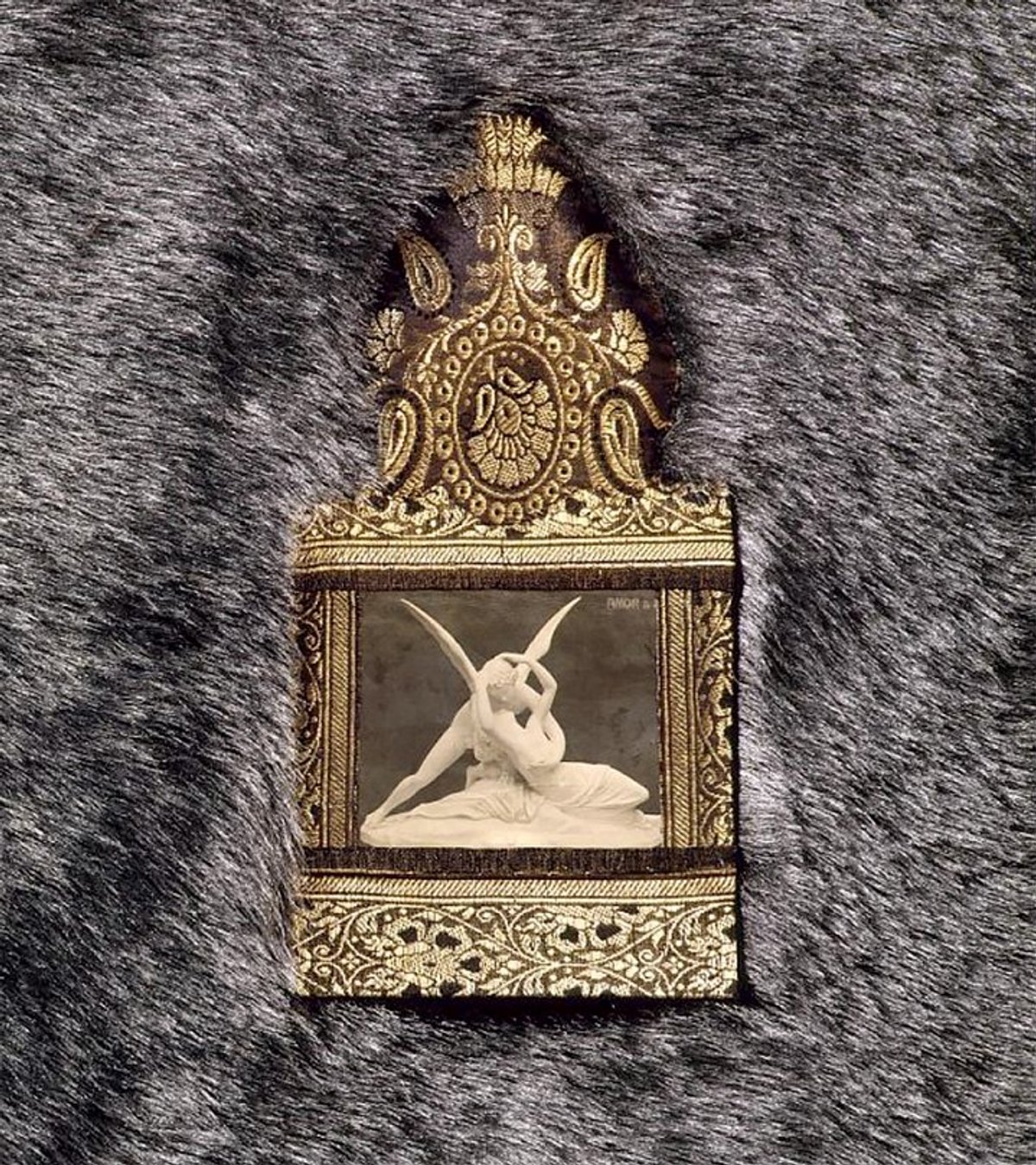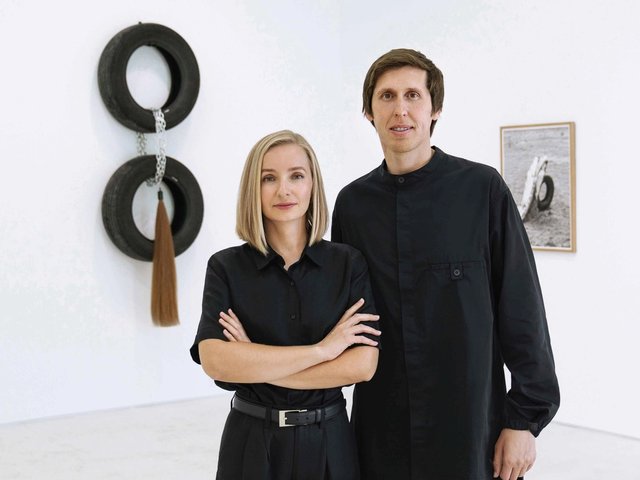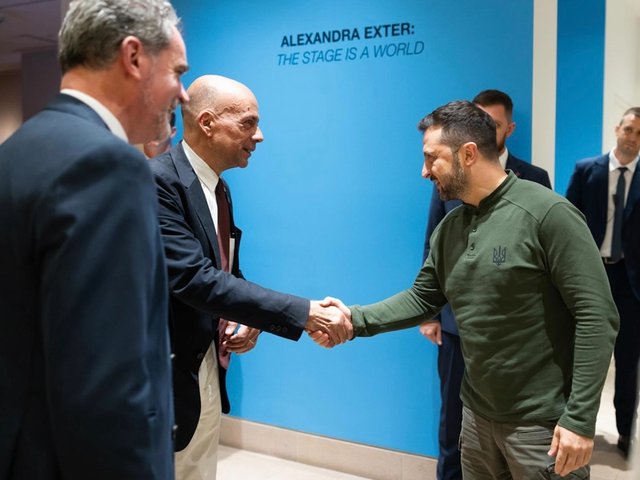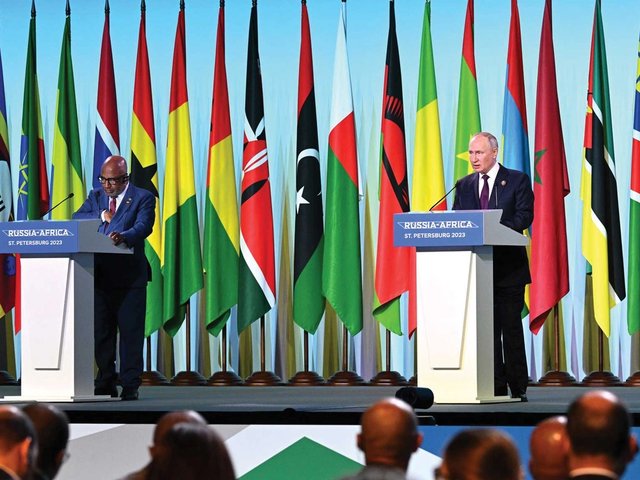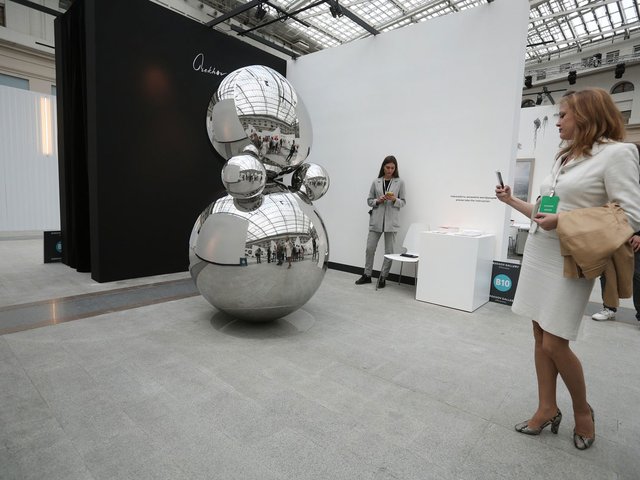An exhibition honouring the late contemporary artist Timur Novikov at the Russian Museum in St Petersburg was partially censored and its opening was temporarily delayed last month, stoking fears that cultural censorship in Russia is intensifying since the country's invasion of Ukraine last year.
Russian media reported that the exhibition, called Klin Novikova (Novikov’s wedge), which was supposed to open on 19 July, was cancelled at short notice with expectations that it had been shut down for good. It did, however, open to the public on 26 July and will run until 25 September to mark what would have been Novikov’s 65th birthday.
Former colleagues of Novikov in the New Artists group that he created in Leningrad in the 1980s, and which grew into the New Academy of Fine Arts in the 1990s, took to social media to describe how works of theirs in the exhibition were censored, especially to obscure male genitalia. The New Academy, which promoted a revival of Classical art, glorified the human body.
Among the censored works were those of Olga Tobreluts, who was a close friend of Novikov’s, but she and others were especially up in arms about the museum’s decision to alter a work by the late artist Konstantin Goncharov. The velvet penis of a donkey costume created by Goncharov for a production of Apuleius’s The Golden Ass was covered up. Meanwhile, a penis in a print rendition of a classical sculpture from Tobreluts’s Adam and Eve, whom she depicts as Elvis Presley and Madonna, led to her work being removed altogether. She called the museum’s actions “barbarism”.
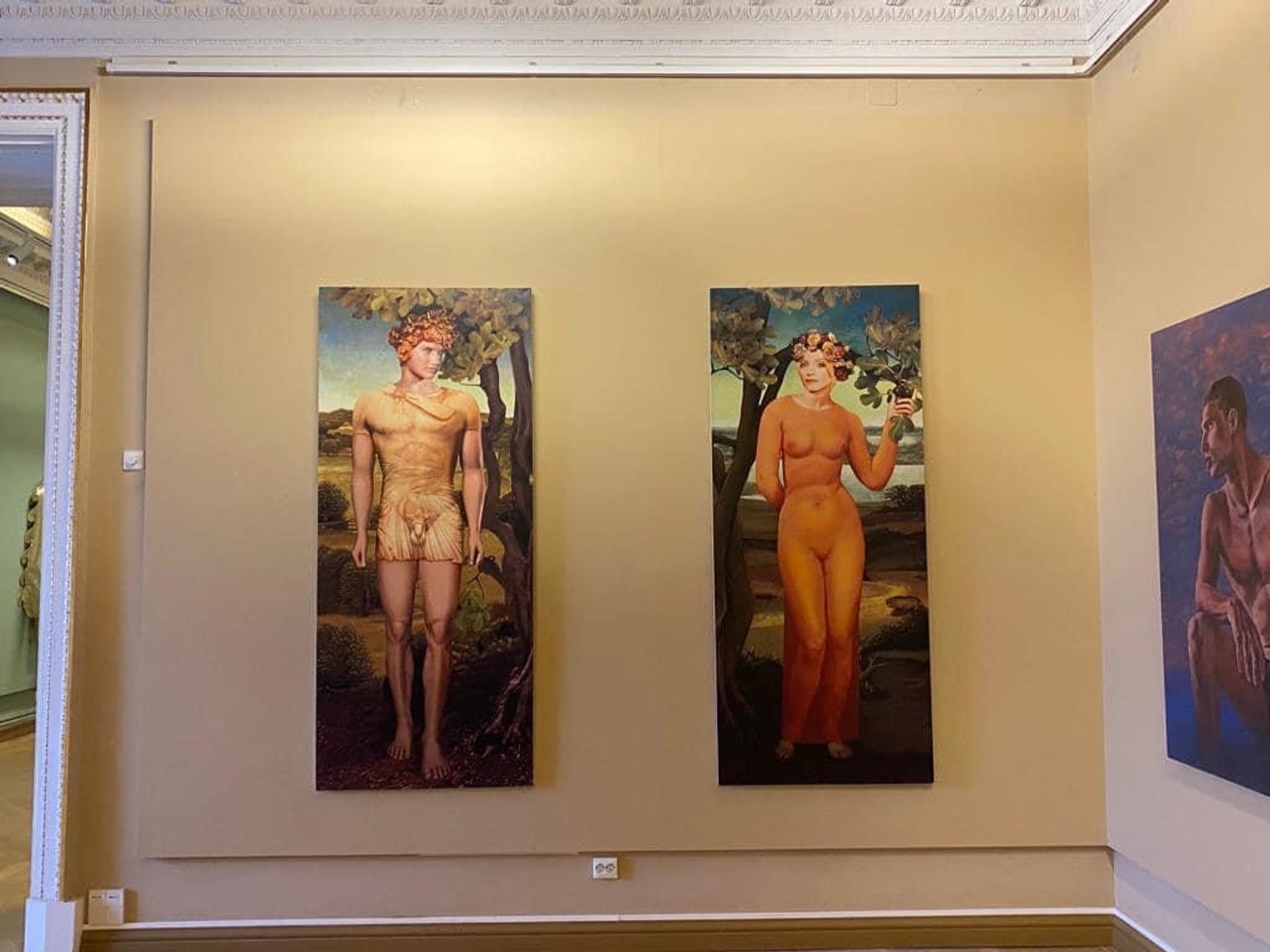
©Olga Tobreluts’s Adam and Eve before it was taken down © Akim Haas
Alla Manilova, a Kremlin-connected functionary who had served as Russia’s deputy culture minister, was appointed as the director of the museum in April. Manilova declined to comment to The Art Newspaper, and has not publicly commented on the exhibition. However, according to a statement from the museum’s press service, the first iteration of the exhibition had to be changed because it violated a number of technical regulations and did not include enough works by Novikov from the museum’s own collection.
Once flamboyantly queer, by the late 1990s, after a trip to the US, Novikov became a devout Russian Orthodox believer and political conservative, and married a woman. This led to speculation that, if he had lived beyond 2002, his views would have been in line with those of Vladimir Putin’s regime today. The philosopher Alexander Dugin and the contemporary artist Alexey Beliayev-Guintovt, leaders of Russia’s cultural shift to the right, were also associated with the New Academy movement. Sergei Bugaev, known as Afrika, an avid Putin supporter, was an early cultural collaborator of Novikov's. Novikov died of pneumonia in 2002.
Tobreluts, who splits her time between St Petersburg and Hungary, describes Novikov as prophetic. “He very precisely predicted the development of the country and of art,” she says, adding that he dealt with many of the issues that artists who have remained in Russia now face, such as interaction with official state culture. “To what extent is the country closing? What is to be done with beautiful nudity, with wonderful European culture? Or are we part of Russian European culture and not cancelling the great Renaissance on which academic education is based?”
Ekaterina Andreeva, an art historian specialising in Novikov’s work, who started putting together the exhibition in 2021, says that her goal was to show the artist’s impact as an avant-garde visionary of the 1990s unique to St Petersburg. Novikov, she says, gave a new impulse to 20th-century Neo-Classical art, striving to create a society that is “the real embodiment of beauty, without which Neoclassical Petersburg cannot live and European culture is also deprived of its sources and horizons”.


